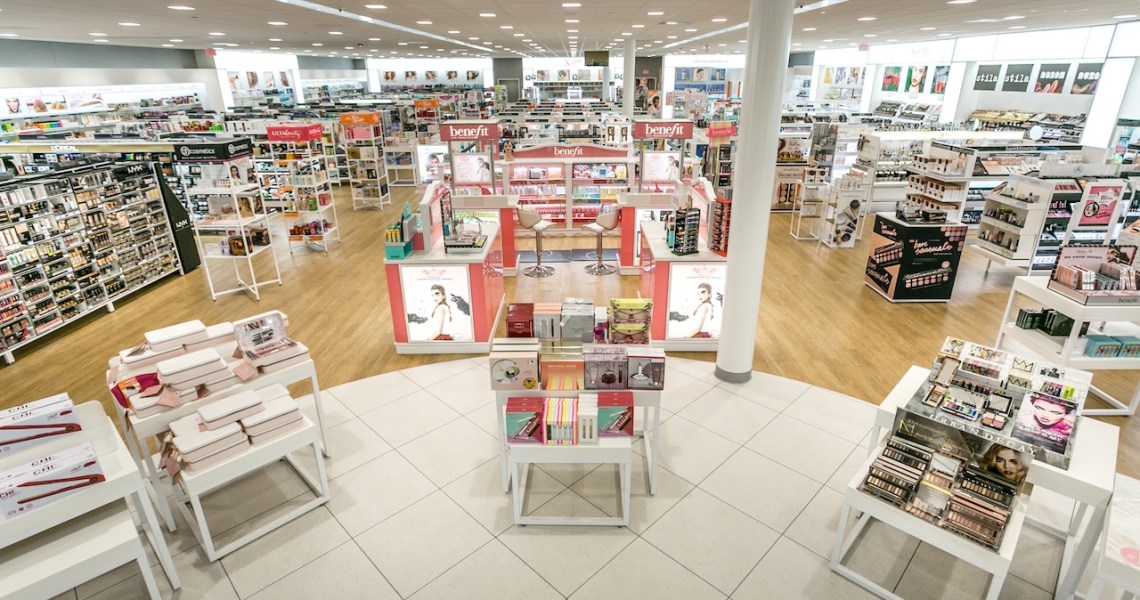As consumers started holiday shopping earlier and were more willing to walk into physical stores, online beauty shopping subsided over the holiday sales weekend.
Online Black Friday sales in the health and beauty category across 19 retailers decreased by 25% in 2021 compared to 2020, as beauty retailers’ sites saw 15% less traffic year-over-year, according to data from Bluecore. This decline was part of an overall decrease in online Black Friday and Cyber Monday sales across all categories, as reported by Adobe.
One reason for the online decline is that more shoppers were out and about in physical stores this year. According to the National Retail Federation, online shopper numbers decreased to slightly below 130 million from 145 million in 2020 during the Thanksgiving to Cyber Monday period. Meanwhile, 105 million consumers shopped in stores, up from 90 million in 2020. Data from Sensormatic showed that foot traffic on Black Friday weekend was 34% higher than in 2020.
“We saw those numbers certainly revert a bit to more traditional distribution,” said Matthew Shay, NRF president and CEO, in a media conference call. “Shopping in real life is important to consumers.”
Shopping ahead of Black Friday due to concerns over supply chain also contributed to the decreased online spending.
“A substantial number of American consumers began shopping earlier than ever,” said Shay. As a result, “retailers started preparing for the holidays well in advance.”
Retail sales for the first 10 months of this year through October 31 are up 14% year-over-year, based on NRF data. NRF also found that, by Thanksgiving holiday weekend, 84% of holiday shoppers indicated that they had started shopping and had completed about half of their shopping, on average.
But online shopping certainly wasn’t dead. The average order value for online beauty shoppers increased by 8%, according to Bluecore.
On Amazon, best-selling beauty items included Olaplex’s No. 7 Bonding Oil, EcoTools’s Makeup Brush Set and La Roche-Posay’s Toleriane Double Repair Face Moisturizer. Jade rollers and gua sha and face roller devices were also among the best sellers. Oprah’s Favorite Things list also helped drive Amazon sales for smaller beauty brands, with products including Lollia’s Imagine Bubble Bath and Poppy & Pout Lip Balm seeing the Oprah Winfrey boost.
Beauty shoppers still did their research ahead of time, although at a slightly lower level: Bluecore found that 39% of health and beauty shoppers looked up items before buying in 2021, compared to 42% last year. As brands use Black Friday and Cyber Monday deals to entice first-time shoppers, retailers in the beauty category were much less likely to convert first-timers. According to Bluecore, 35% of Black Friday shoppers in the health and beauty category were first-time buyers at the retailer, a lower rate than the 52% across all categories.
“The one-and-done customer acquisition tactics that once prevailed in the early stages of direct-to-consumer retail are being replaced by strategies designed to drive long-term profitability,” said Fayez Mohamood, CEO of Bluecore.
Looking forward to the rest of the holiday season, the Omicron variant has created more uncertainty and may prompt more consumers to head back online for the rest of their holiday shopping — and spend more on consumables rather than trips or dining.
“In terms of the specific economic impact, we know, unfortunately, that when the variants have had a real impact on the economy, the goods side of the economy actually benefited from that, because people change behavior away from the experience side of the economy,” said Shay.




